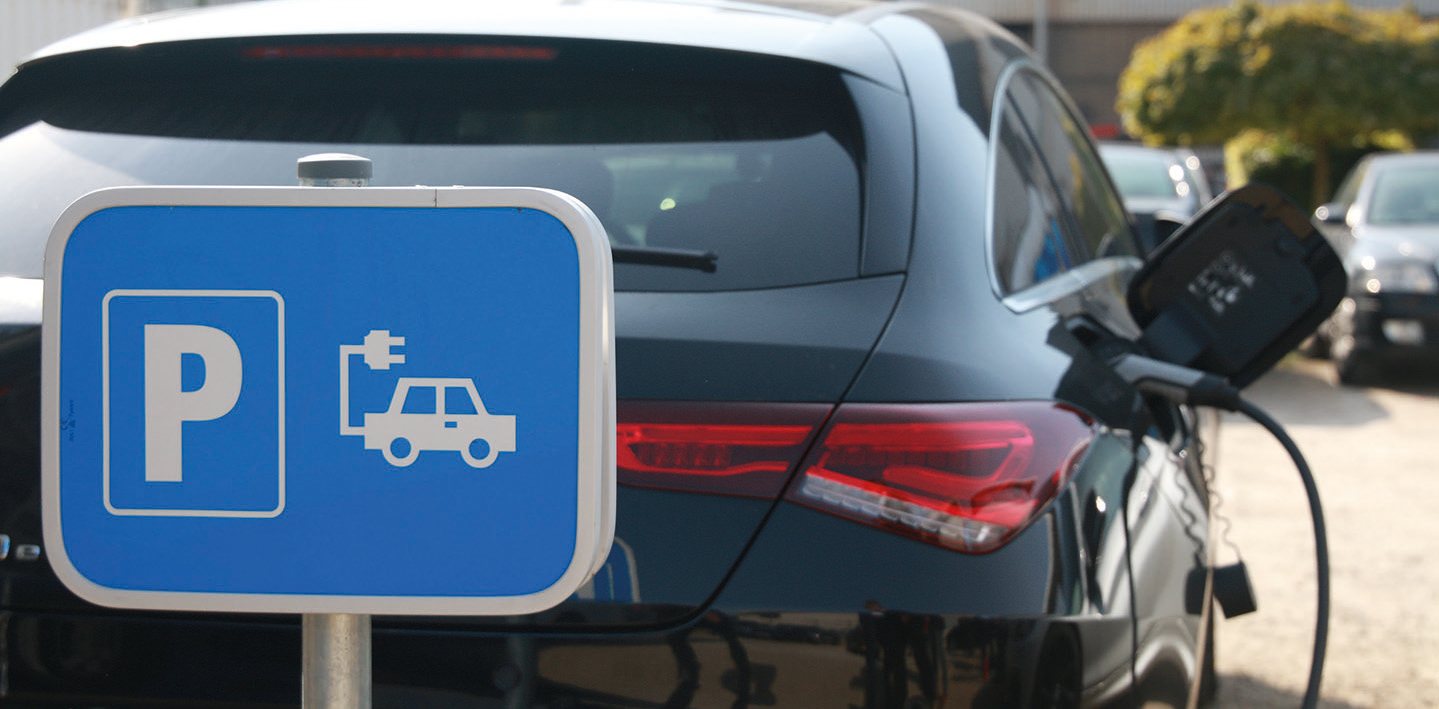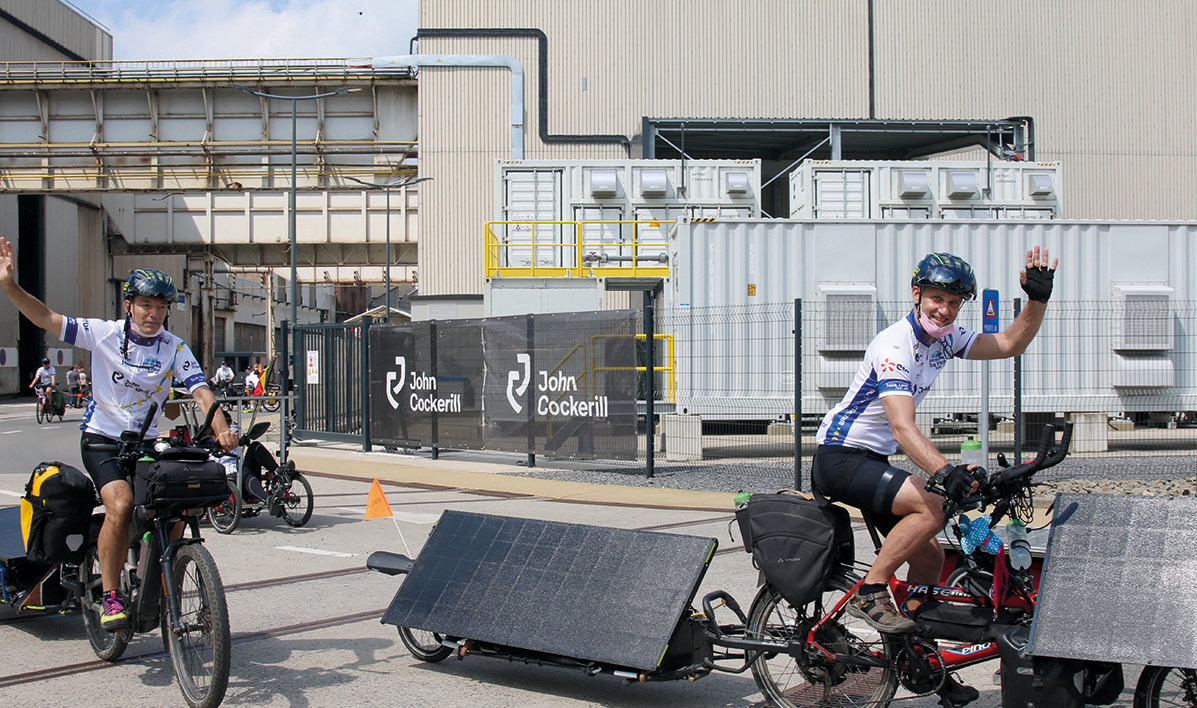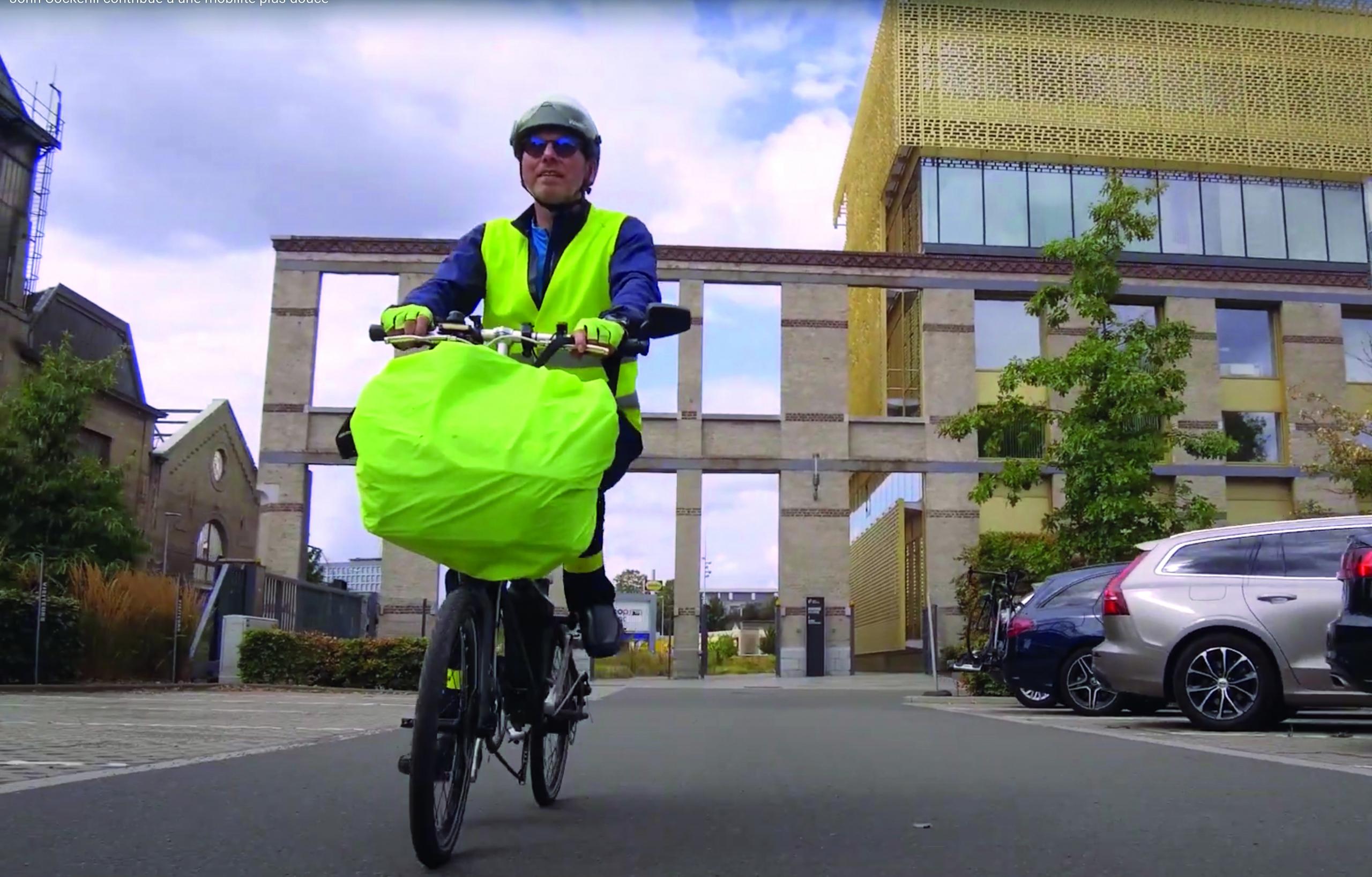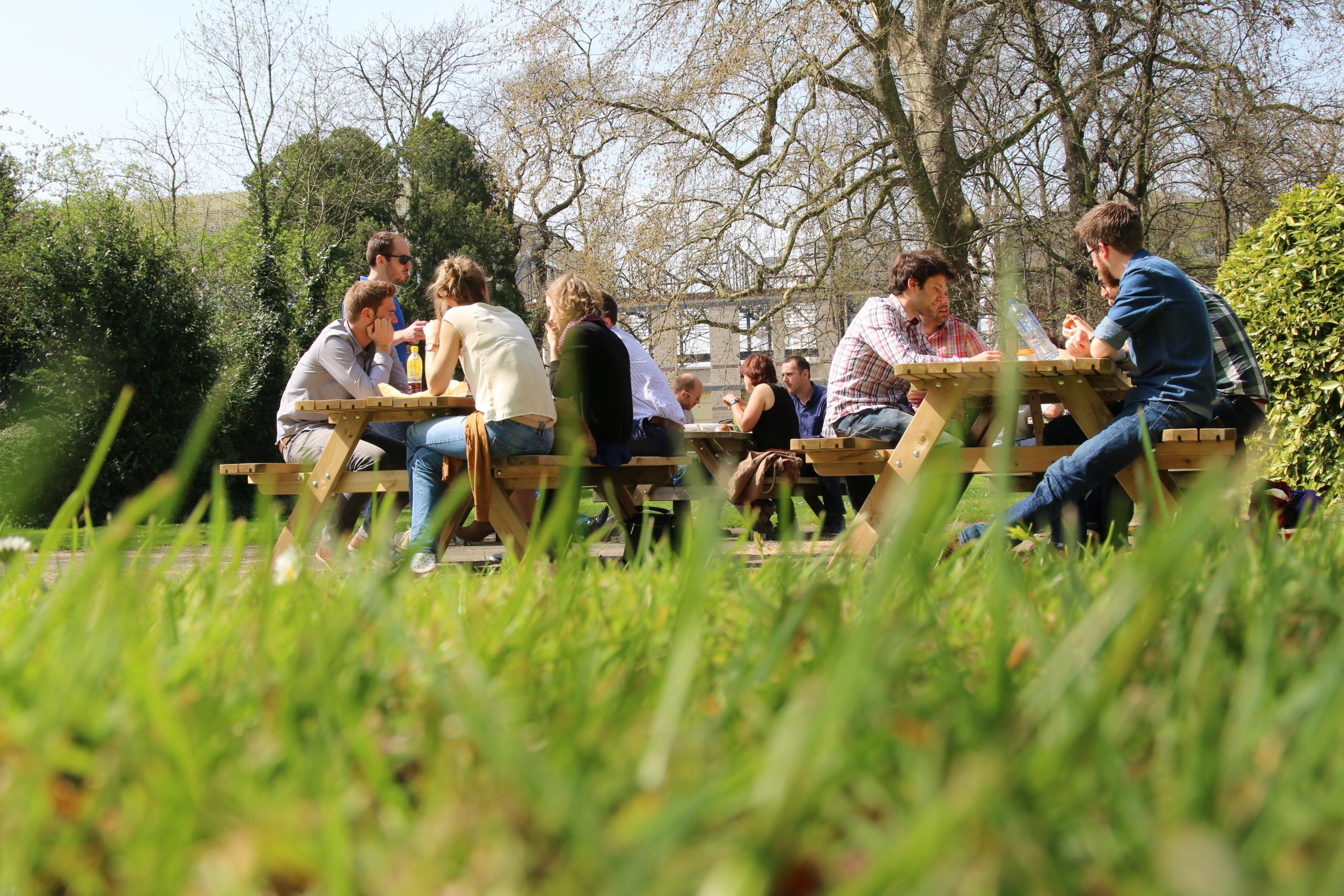Measuring in order to change gear
While John Cockerill provides solutions to decarbonize human activities and preserve natural resources, the Group is also committed to reducing its own environmental footprint. This transition in its practices is part of its social responsibility, and, more broadly, its ESG (Environment, Social and Governance) approach. In 2021, John Cockerill set out to structure its approach to amplify its impact and raise awareness of the need for change among all players.

First carbon footprint assessment
In 2021, John Cockerill carried out its carbon footprint assessment using the ’GHG protocol‘ method. The Group’s headquarters in Seraing (Belgium), where more than 700 employees work, served as a pilot. From 17 000 tons of CO2 equivalent in 2019, the total emissions fell to 11 000 in 2020. This represents a decrease of 35%, partly due to specific situations which have arisen as a result of the health crisis.
This first measurement of the carbon footprint made it possible to distinguish the sources of emissions and to make a diagnosis based on factual criteria. This diagnostic has two objectives: to start reducing the carbon footprint on the site and to test a methodology, which will then be rolled out across the entire Group.
The report highlights the relative weight of business travel and the mobility in the carbon footprint of the Seraing site. The pandemic and its confinement have led us to develop new ways of working, such as using remote communication to avoid certain trips, or remote working. These changes in habits will continue to have a positive impact on our CO2 emissions. This assessment has also shown other sources of rapid progress, which can be gradually applied to other Group sites around the world.
Half the amount of industrial waste
The study carried out in 2021 also showed the evolution of the weight of industrial waste produced on the Seraing site. A decrease has been observed: from 358 tons in 2019 to 178 tons in 2020, 69 tons of which are to be upgraded through various channels. The production of waste has therefore decreased by almost 50% in one year.

Exploiting all the possibilities for producing green electricity
With a concern for reducing its own environmental footprint and improving its efficiency, the Group is modernizing its facilities. It is in view of this that the latest renovation work at the Headquarters has made it possible to significantly improve its energy efficiency. Supplied with green electricity from the 15 000 m² of photovoltaic panels installed in 2018, the site moved closer to energy self-sufficiency in 2021, thanks to the optimization of the storage and management of this green electricity, via its MiRIS pilot production, management and storage station.
With a fleet of vehicles that is becoming greener, and a 2 MWc production capacity from its solar roofs, John Cockerill installed 90 terminals in 2021 for recharging the electric vehicles of its employees and visitors. This recharging capability is mainly powered by green electricity produced and stored by MiRIS.
The Brazilian example
In Brazil, in December 2021, John Cockerill’s teams in Macaé inaugurated the largest consumption unit in the region with micro-generation of electrical energy by photovoltaic panels. The production capacity of the installed solar modules represents all of the consumption necessary for the activities of the site. With this pilot project, this entity now has the capacity to achieve self-sufficiency in electricity. John Cockerill has become the only company in the Macaé region to be supplied with 100% renewable energy.

During its visit to John Cockerill in Seraing, the Sun Trip peloton visited MiRIS, the pilot station for the production, storage and management of photovoltaic electricity.
A solar bike race to raise awareness of greener mobility
In 2021, John Cockerill supported The Sun Trip, the solar bike race across Europe. This daring human adventure, whose aim is to raise public awareness of green mobility and the possibilities of alternative travel, stopped off at John Cockerill in June.
The participants in this atypical race, which included a crew supported by John Cockerill, passed through our site in Aspach-Michelbach (France), and then through the Group Headquarters. John Cockerill’s employees had many opportunities to join in this adventure: some mounted their bikes to accompany the peloton on the prologue route, while others shared and promoted this adventure on social networks, and others attended the post-race testimony session by Géry, one of the competitors sponsored by John Cockerill, who completed his 11 000 kilometers in 61 days.

9 000: This is the number of kilometers cycled by our employees in 2021 in their journeys between their home and their workplace.

